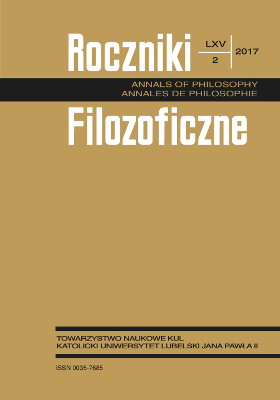The Best of All Possible Worlds and the Christian Thesis of the Corruption of the World
The Best of All Possible Worlds and the Christian Thesis of the Corruption of the World
Author(s): Jerzy KopaniaSubject(s): Philosophy, History of Philosophy, Early Modern Philosophy
Published by: Towarzystwo Naukowe KUL & Katolicki Uniwersytet Lubelski Jana Pawła II
Keywords: Leibniz; the best of all possible worlds; the contamination of the world; salvation
Summary/Abstract: Leibniz’s claim that we live is the best of all possible worlds is in contradiction with our experience, which is why we tend to maintain that the world would become better if at least some of its properties and characteristics were different. Leibniz criticized such an approach and argued that every attempt at changing the world would make it worse, or even impossible. His claim seems to be in contradiction with the Christian belief that our world is contaminated with sin, but it will be renewed in the end to become the reality of salvation, i.e. the best of all possible realities. This article puts forward two arguments: (1) Leibniz’s claim is not in contradiction with the Christian belief in salvation; (2) Leibniz’s claim is in contradiction with the human experience of the world because it is a result of an intellectual speculation based on the false assumption that the structure of the human mind adequately corresponds to the mind of God.
Journal: Roczniki Filozoficzne
- Issue Year: 65/2017
- Issue No: 2
- Page Range: 145-165
- Page Count: 21
- Language: Polish

